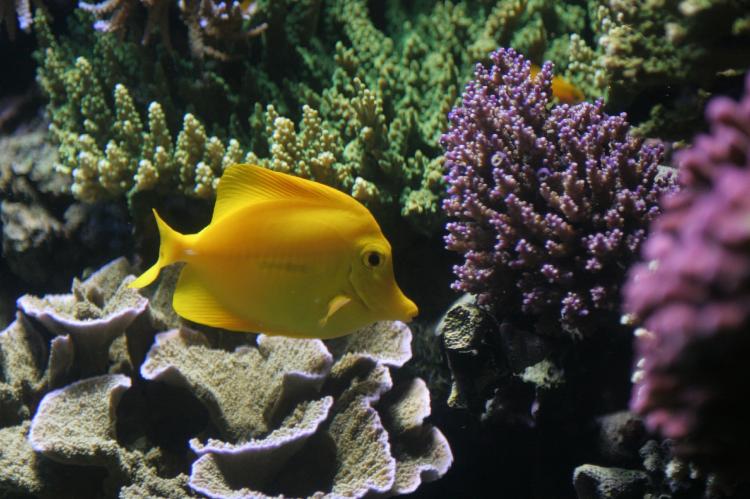Changes in water chemistry help reef fish cope with rising temperatures
New research suggests that reef fish may not be as affected by ocean acidification as previously thought.
A new study by scientists at the ARC Centre of Excellence for Coral Reef Studies at James Cook University (JCU) suggests that reef fish are less affected by ocean acidification as previously thought. This realization came about after they recalibrated their experiments to adjust for the daily changes in dissolved carbon dioxide concentrations.
“Shallow water habitats where reef fish live can experience substantial natural fluctuations in water chemistry throughout the day,” said Professor Philip Munday, senior author of the study, which was recently published in Scientific Reports.
He elaborated on this, explaining that carbon dioxide levels at coral reefs are usually much lower during the day than they are at night.
Lead author Michael D Jarrold, a PhD student at the university, said that their research suggested that the natural daily changes in the water chemistry were sufficient to provide fish with a recovery period, and this would reduce their sensitivity to the higher carbon dioxide levels.
Previous research normally relied on stable, open ocean conditions, and did not take into account the combinations of environmental variables needed to accurately simulate both the natural and human-influenced water conditions.
In contrast, this new study had involved JCU’s state-of-the-art facilities as well as the Australian Institute of Marine Science’s National Sea Simulator (SeaSim), which was able to recreate the natural daily carbon dioxide cycles found at the reef.
“It’s the first time these dynamic natural conditions have been reproduced in a laboratory setting to test their potential influence on the behaviour of coral reef fish,” said Jarrold.
“We are thrilled about what we’ve found. Our results provide a greater level of optimism for reef fish populations in the future,” he added.


